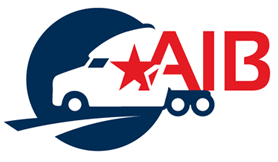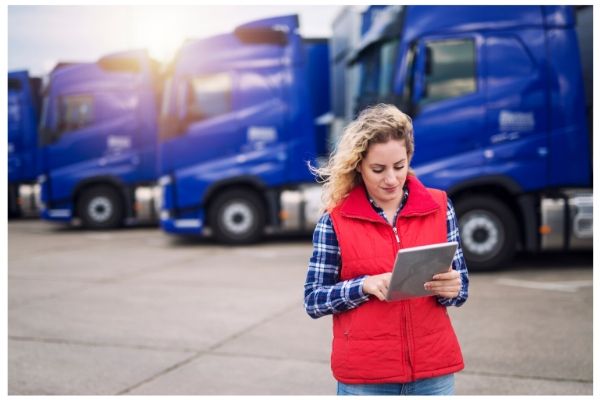What does each type of commercial vehicle insurance cover?
When your vehicle is a part of your livelihood, comprehensive protection is important. Your choice of commercial vehicle insurance depends on several crucial factors, tailored to the unique demands of your business.
For example, if you drive across state lines, carry valuable cargo, or tow other people’s cars, your insurance agent will work with you to find the best coverage. Keep reading to learn about the different types of commercial vehicle insurance options you should consider.
Whether you’re a long-distance trucker or a local contractor moving heavy equipment, knowing about these insurance choices will help you make smart decisions. It’s all about keeping your business safe while you’re on the road. So, read on to get the information you need.
Liability
Liability insurance is the most basic form of commercial vehicle insurance.
It covers injuries or damage to other people or property if you’re at fault for an accident. If someone sues you as a result of your involvement in an accident, it may also cover your legal defense costs.
Learn more about general liability insurance for trucking companies here.
Physical Damage
Physical damage coverage is a general term that keeps your vehicle safe. It includes:
- Collision insurance: This helps you when your vehicle sustains damage in an accident or collides with something, rolls, or overturns. It covers repairs or replacement.
- Comprehensive insurance: This protects your vehicle from non-collision damage or theft.
- Fire and theft with Combined Additional Coverage (CAC) insurance: This is like comprehensive insurance but focuses on specific non-collision incidents.
These coverages ensure your vehicle is in good hands, whether it’s a crash or other unexpected events that come your way.
Read more about physical damage insurance here.
Medical Payments Insurance, or MedPay
MedPay coverage, also known as medical payments coverage, covers medical expenses after an incident.
This may be for you, and passengers in your vehicle, who are injured during an accident, regardless of who caused it.
Uninsured Motorist
Uninsured motorist insurance can protect your business if your driver is involved in an accident with someone who does not have liability insurance or does not have enough liability insurance to pay for associated damages.
In some states, uninsured motorist insurance typically bundles three separate insurance coverages into one. These may include:
- Uninsured motorist insurance (UM or UMBI)
- Underinsured motorist insurance (UIM)
- Uninsured motorist property damage insurance (UMPD)
Covered expenses for you and your passengers could include medical bills, lost wages, and pain and suffering.
Trailer Interchange
If you have a trailer interchange agreement, you generally need trailer interchange insurance. Since exchanged trailers are not owned by you, they require separate insurance coverage because they are not covered under regular physical damage insurance.
This insurance protects you in case collision, fire, theft, explosion, or vandalism damages the trailer.
Non-Trucking Liability
When you’re under permanent lease to a motor carrier, and you’re not driving under dispatch, non-trucking liability insurance provides the truck insurance coverage you need at an unlimited radius.
Non-trucking liability insurance covers medical expenses and damage to others caused by you. It also includes costs for injuries or death caused to others and damage to their property.
Learn more about non-trucking liability here.
Motor Truck Cargo
Cargo insurance, also called motor truck cargo, covers lost or damaged cargo caused by fire, collision, or hitting a load.
For example, if your load is accidentally dumped on a roadway or waterway, removal expenses coverage pays for the cost to remove debris or extract pollutants caused by the debris. This may also include coverage for costs related to:
- Preventing further loss
- Legal expenses in the defense or settlement of claims
- Freight charges
Motor Truck General Liability
Motor truck general liability coverage pays for injuries or property damage caused by your business activities. This coverage is not directly related to operating your truck.
For example, this may include:
- Slip and fall incidents
- Erroneous delivery of products that results in damage of some kind
- Libel and slander
- Fire on rental property due to insured’s error
- Driver’s actions while representing the insured and on others’ premises, like loading docks or truck stops.
On-Hook Towing
On-hook towing insurance can help pay to repair or replace a vehicle you don’t own if it is damaged by a collision, fire, theft, explosion, or vandalism while you are towing or hauling it.
Do note that in Texas and Virginia, on-hook towing insurance is called garagekeepers legal liability insurance. In these two states, what is actually garagekeepers legal liability insurance (and we’ll explore next) is called storage location insurance.
Garagekeepers Legal Liability
Garagekeepers legal liability coverage is optional coverage for business owners who offer towing services or operate service stations. It protects your customer’s vehicles when you are keeping them at a covered location for parking, storing, or performing service.
Garagekeepers legal liability insurance typically protects vehicles from damage caused by fire, theft, vandalism, or collision.
As noted, Texas and Virginia refer to garagekeepers legal liability coverage as storage location insurance.
Workers’ Compensation
Workers’ compensation insurance is a mandatory type of insurance carried by many types of businesses. It’s an important type of coverage that can help cover medical costs and a portion of lost wages for an employee who becomes injured or ill on the job.
Workers’ compensation benefits don’t end there. It also shields companies from employee lawsuits regarding workplace conditions that can cause injury or illness.






